The recent buzz about Meredith Baxter's coming out has gotten me thinking. Actors, comedians, musicians, and artists have more and more often been coming out publicly over the past decade or so since Ellen Degeneres' famous declaration "Yep, I'm Gay" on the cover of TIME Magazine in 1997. And time and time again, we collectively embrace these 'new' members of our community, thank them endlessly for making their sexual orientation known to the world, and seem to instantly forget about the 10, 20, or 30 years they spent keeping that information "private."
As fun, and, if you have made bets with your friends, perhaps lucrative, as it is to have our suspicions confirmed (ahem, Kelly McGillis, Rosie O'Donnell...), I'm concerned about the message we are sending young people today who are just getting their careers started in the entertainment industry. Are we telling them that it is ok to build a career in the closet and then come out once they are "established"? Are we advocating that they spend decades evading questions when they could be acting as role models? It may sound cynical, but recently, upon hearing some of the late-in-life coming out stories in the media I found myself scoffing at my computer or television screen, wondering if said figures enjoyed peeking out of the closet the past several years, waiting until the rest of us made it "safe" for them to emerge.
Privacy, it seems, is the number one reason people give when asked why they've chosen to keep their sexual orientation out of the spotlight. As explanation, they will tell you that it is simply not important, and that there is no reason their sexual orientation should be discussed when others' heterosexual orientation never comes up for debate. I beg to differ. We live in a heterocentric world where, outside of perhaps West Hollywood and the Castro district of San Francisco, heterosexuality is assumed. We are all, in fact, "straight until proven otherwise." The question is: how many of us are comfortable letting that assumption lie (no pun intended)?
more on next page...
\\\
(continued)
Putting public figures aside for a moment, we all know LGBT people who are more comfortable with the world assuming, or even firmly believing, that they are straight. You know exactly who I'm talking about - that friend who is out and proud on Friday night, but come Monday morning's board meeting is laughing off -- but not answering -- co-workers' inquiries as to why a "nice girl like her doesn't have a boyfriend yet."
I know quite a few lesbians who, when in a work environment or even work-related social event, choose to introduce their girlfriends or partners simply by name ("This is Emily," for example, conveniently avoiding a title such as "my girlfriend") or, better yet, use the words "my friend" to preface their introduction. And almost without fail, if confronted about this strange evasiveness, those who regularly practice such workplace closeted-ness will all shrug off their lies of omission as simply maintaining "boundaries" within their work environment or keeping their "private life private."
The conflict lies in why it is that giving any indication of who we are with is considered overstepping boundaries of propriety. I don't know many straight, corporate CEO's who introduce their husbands and wives with the level of ambiguity so many in the LGBT community choose to practice. If Matt introduces his wife Julie as "my wife, Julie" at the office holiday party, why doesn't Kara introduce her partner Elaine as "my partner, Elaine?"
The implications of the heteronormative assumptions we are surrounded by are increased significantly when public figures are involved. For every kid or young adult out there questioning his or her sexuality, the Adam Lamberts and Rachel Maddows of the world are making an enormous difference. On the other hand, those who are just now coming out after years of living in the closet publicly -- even if they were out to personal friends and family --are sending a very mixed message. They are telling the world that they are ready now, but that at one point, possibly for years or even decades, this information was, in fact, worth hiding.
Which begs the question: is it worth hiding? Many would argue that it is. Granted, we do not live in Uganda, and most of us do not live in daily fear for our lives at the hands of our government as the result of our sexual orientation. However, we do live in a country where, in most states, LGBT individuals can still legally be fired from their jobs for their sexual orientation or gender identity. We do live in a society that readily and openly discriminates against LGBT individuals in social, political, and perhaps most often, familial circles. For many people, the costs of being "out" far outweigh the benefits. And so, countless people in this country who are by orientation lesbian, gay, bisexual or transgender, are not out.
more on next page...
\\\
Those people though, for the most part, did not choose a career that placed them on the cover of People or on a segment of Good Morning America or The View. They are not role models for thousands, let alone millions, of people. If their role models, if the public figures they so love and admire, more often started their careers with the closet door flung wide open, I can't help but wonder how quickly society would change, how many more ENDA resolutions would pass, how many more states would begin the process of legalizing same-sex marriage.
We are a media and celebrity-obsessed culture. Oprah Winfrey's endorsement of President Barack Obama may have won him more votes among women across America than any political debate ever could have. With one phrase, "Yep, I'm gay," Ellen Degeneres changed millions of lives and opinions. Those with influence, with a platform, and with a fan base -- even a newly developing one --have an enormous opportunity, as well as a responsibility, to live their truth and encourage others to do the same.
There is, of course, another side to this story. There is the side that says that perhaps the attention and influence women like Meredith Baxter, Wanda Sykes, Rosie O'Donnell, and even Ellen Degeneres herself had when they came out publicly would not have been possible had they done it earlier in their careers. Without these women declaring their sexual orientation from the get-go, Americans - gay and straight, liberal and conservative, religious and non-religious - grew to love and enjoy them, turn on their televisions and see them in their living rooms every day or evening, free from judgment.
And then, years later, when the sexual orientation of these women was made public, some of those Americans were confronted with how to reconcile their possibly negative feelings about homosexuality with how they felt about a particularly beloved comedian, talk show host, or actor. And, in turn, hearts and minds were changed. This is not only true, but valid. It is also incredibly sad. Essentially, what this trend means is that society is sending the message that it is easier to get to know someone for who we believe them to be rather than who they actually are. Our culture is enforcing the idea that ignorance is bliss, even though most of us would agree that ignorance, at the end of the day, is really just ignorance.
It has been said that the most important factor in an individual's feelings toward and understanding of LGBT issues comes down to whether they know, admire, or even love someone who is gay or lesbian. We all have a few people we "know" in common - people who grace the covers of magazines in the grocery stores, who show up on E! every night, who make us laugh and cry on our favorite sitcoms - and "knowing" them as well as their sexual orientation could change the political and social landscape in America when it comes to LGBT issues.
And as much as I'll enjoy the extra pocket change I'll win from bets with my friends when today's young Hollywood elite come out (you know who I'm talking about) a decade or two from now, I won't be applauding. In the time today's young entertainment personalities will waste hanging out in the closet, likely at the advice of agents, managers, and producers, the statistics of depression, addiction and suicide among LGBT youth will not change. I will though, be forever grateful to our out and proud celesbians and their gay male counterparts who have eased the journey for countless questioning youth, and transformed, one coming out story, television appearance, and magazine article at a time, the opinions of individuals across the country and around the world.
Harvey Milk said over 30 years ago, "If a bullet should enter my brain, let that bullet destroy every closet door." Those words were spoken in a film that won multiple Academy Awards last year - Hollywood's biggest honor. So, I wonder, when will Hollywood stop being America's biggest closet.


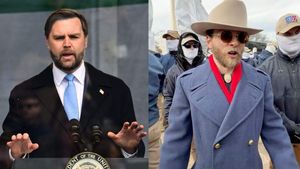

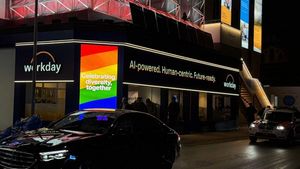




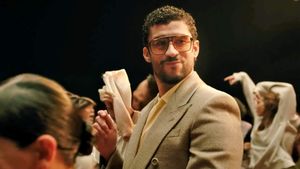
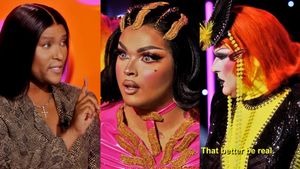
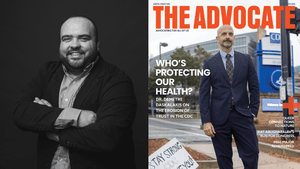
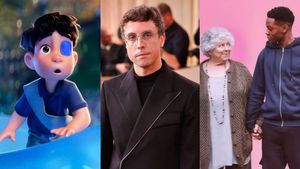


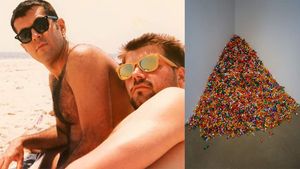
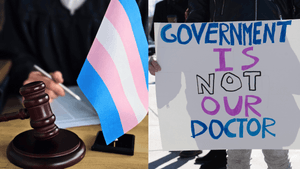


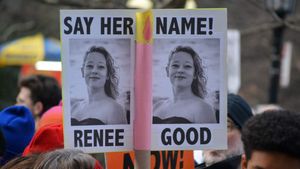




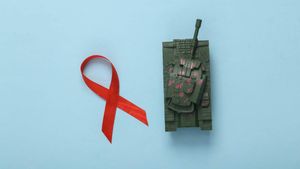




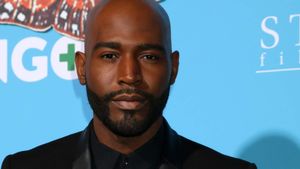


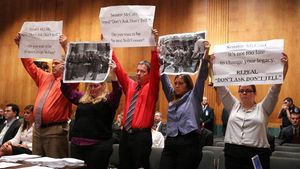



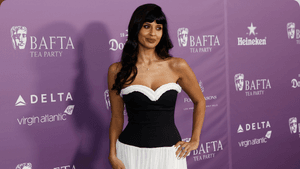
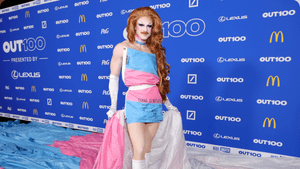
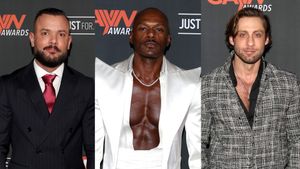







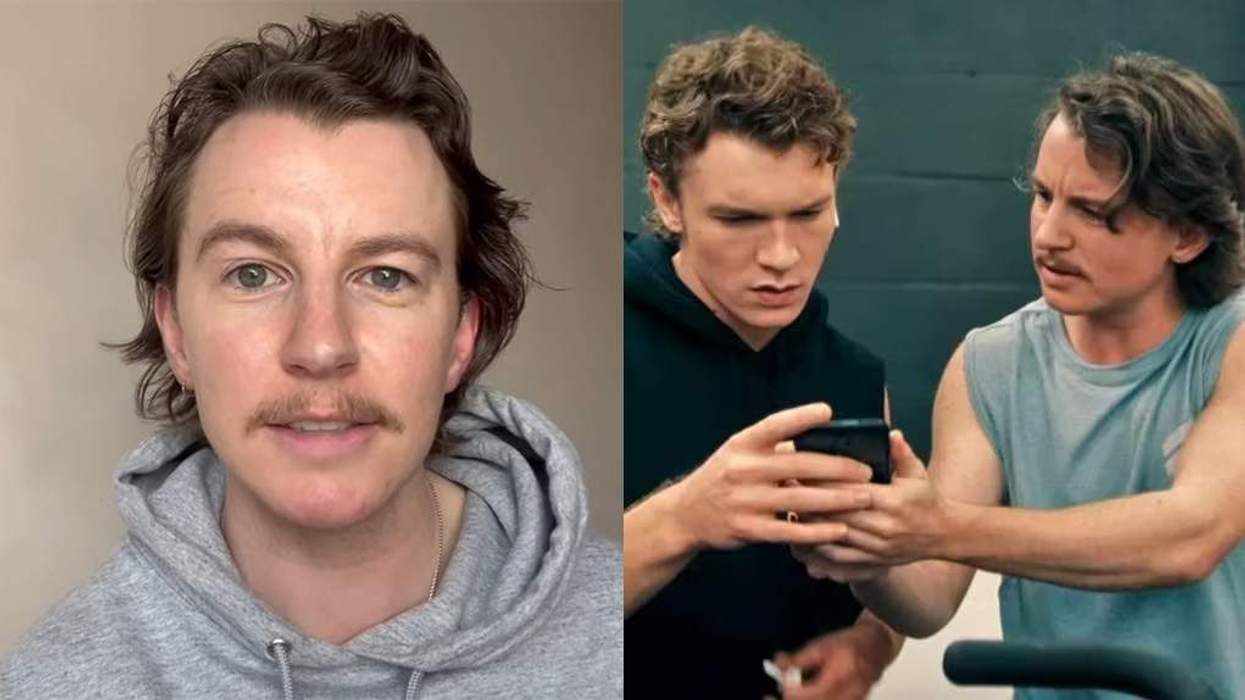
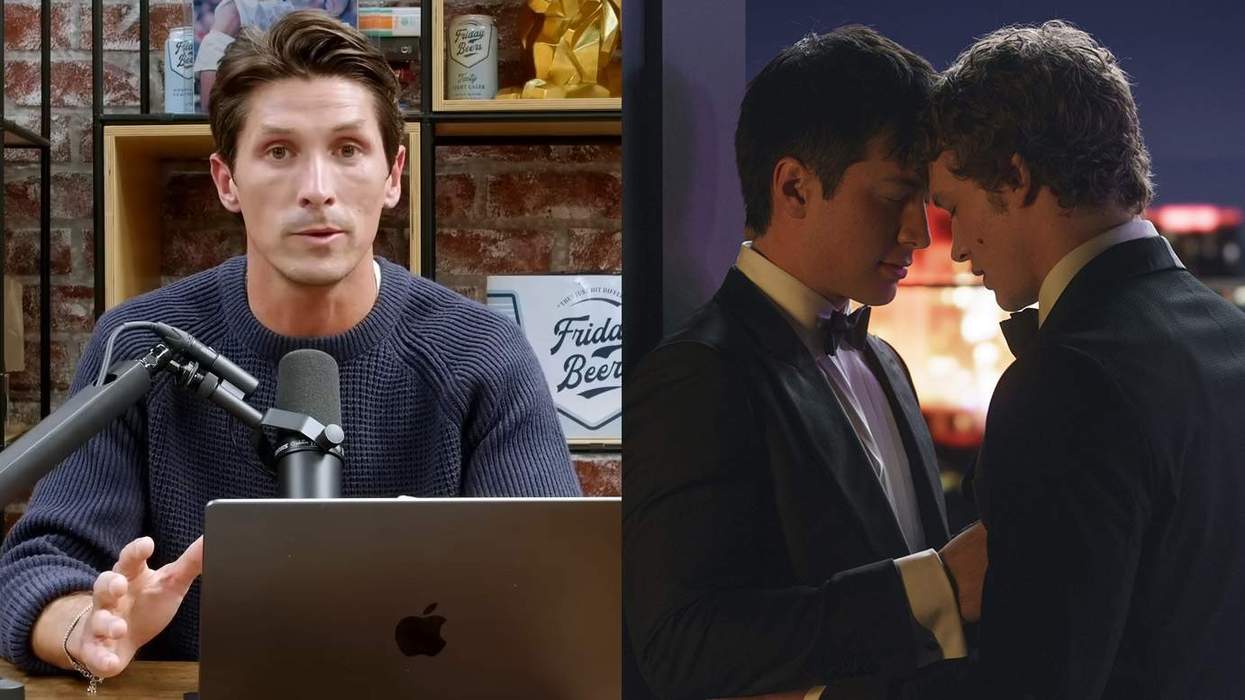
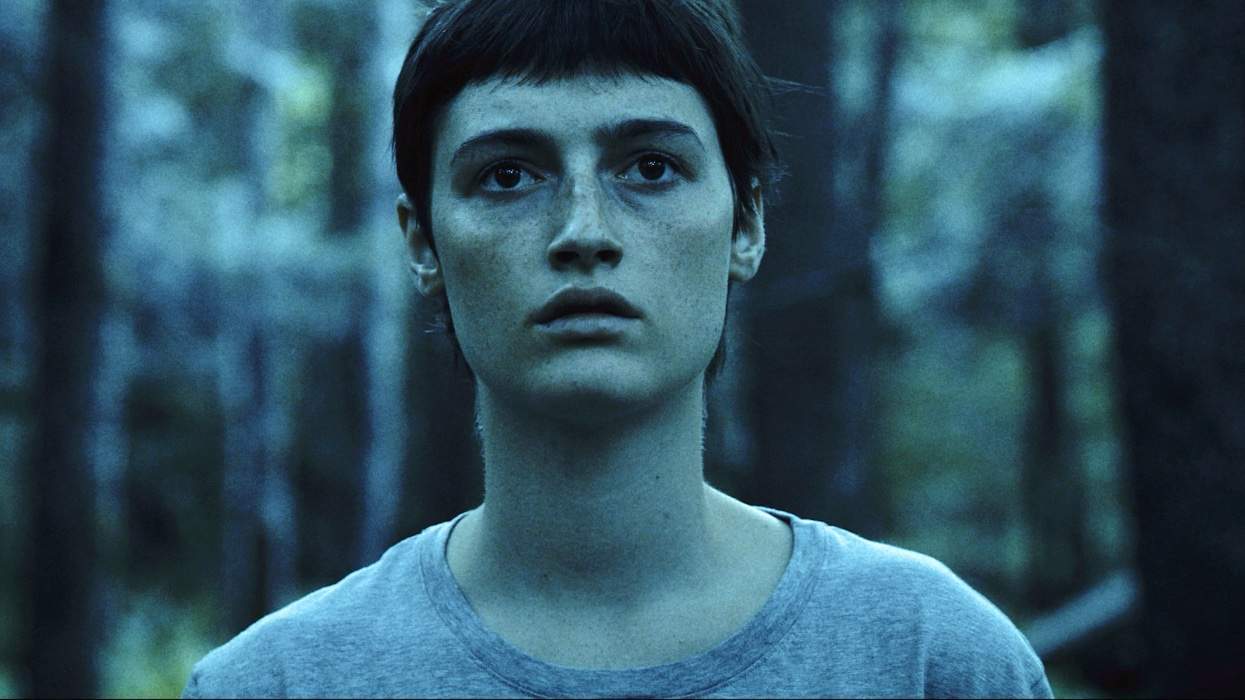
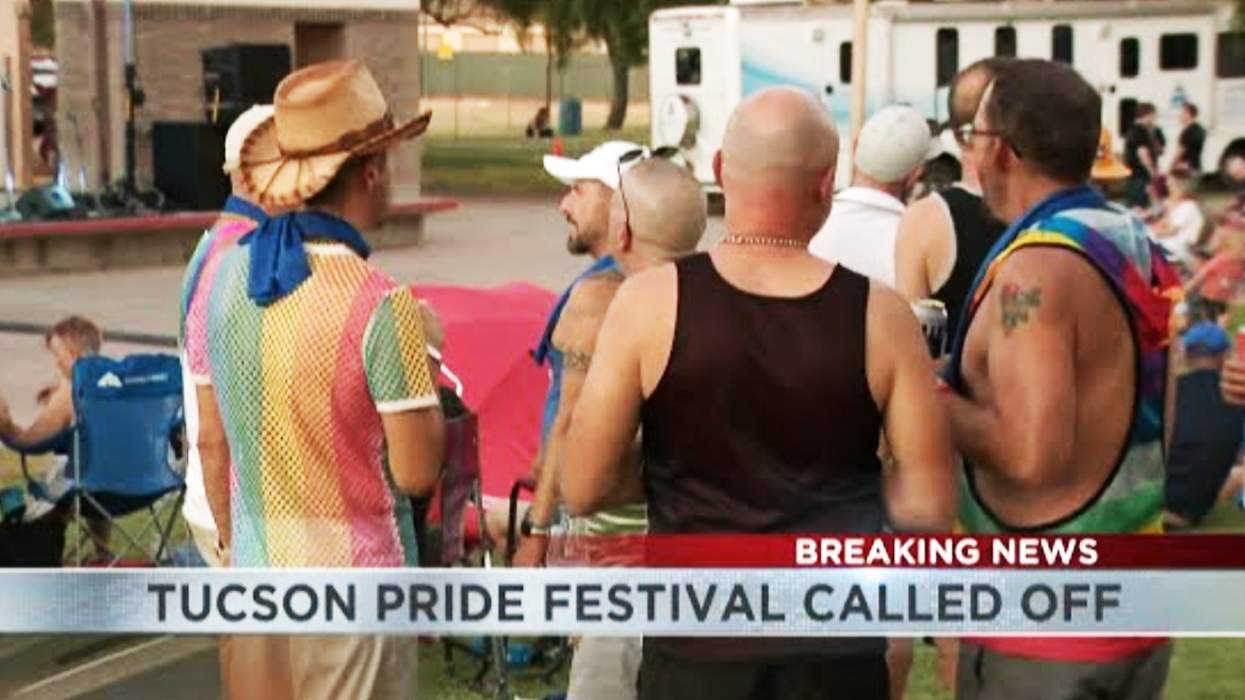

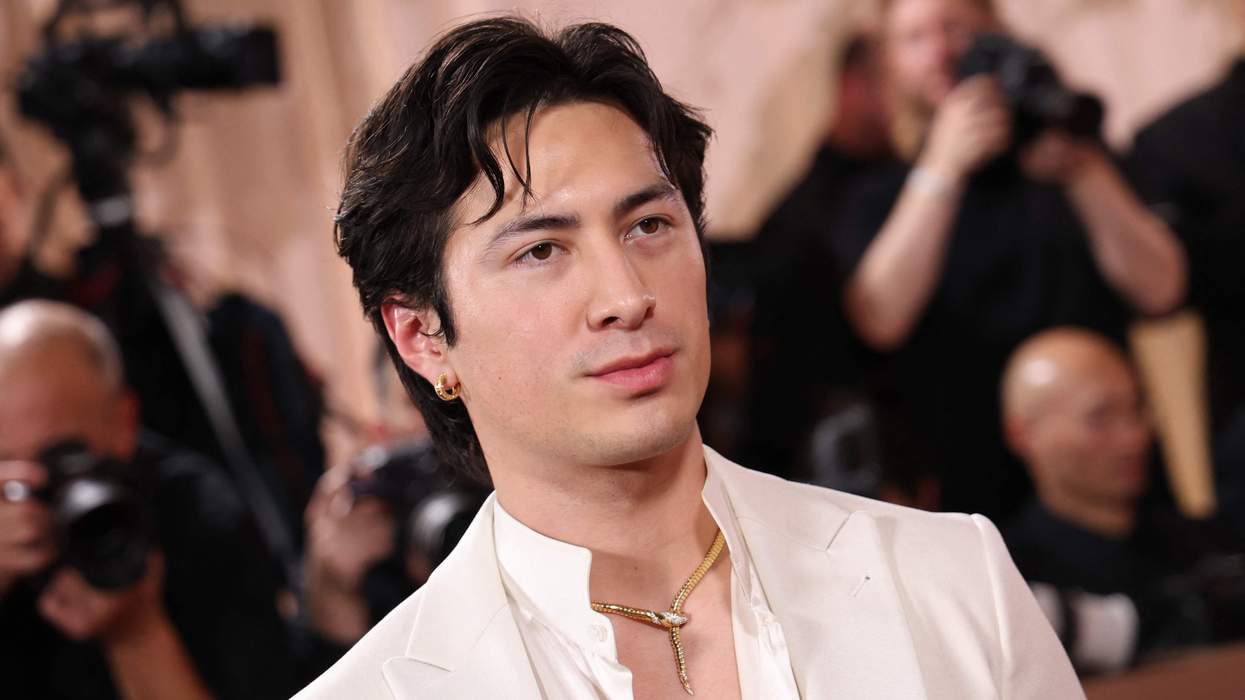



































 Cindy Ord/Getty Images
Cindy Ord/Getty Images























